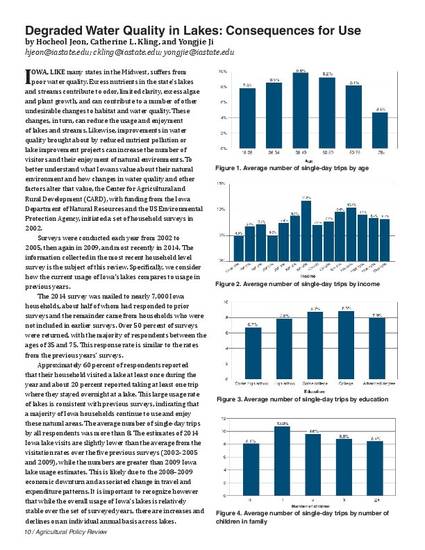
Iowa, like many states in the Midwest, suffers from poor water quality. Excess nutrients in the state’s lakes and streams contribute to odor, limited clarity, excess algae and plant growth, and can contribute to a number of other undesirable changes to habitat and water quality. These changes, in turn, can reduce the usage and enjoyment of lakes and streams. Likewise, improvements in water quality brought about by reduced nutrient pollution or lake improvement projects can increase the number of visitors and their enjoyment of natural environments. To better understand what Iowans value about their natural environment and how changes in water quality and other factors alter that value, the Center for Agricultural and Rural Development (CARD), with funding from the Iowa Department of Natural Resources and the US Environmental Protection Agency, initiated a set of household surveys in 2002.
Available at: http://works.bepress.com/catherine_kling/57/
